The word “niche” has been putting down roots since the early 1600s, but it eventually evolved to describe specific communities and interests in the social media era.
Content creation, from Instagram curation to short cooking videos on TikTok, has made everyone obsessed with finding their “thing.”
Chances are, your feed is probably flooded with creators talking about their niche.
But what does it actually mean?
Knowing what a niche really is can change everything. It’s the difference between shouting into the void and speaking directly to people who actually care about what you have to say.
Key Takeaways
- A niche is a specialized segment of a market or audience with specific needs and interests.
- Understanding your niche helps you create more targeted and effective content or products.
- Niches exist across all industries, from tech startups to local coffee shops.
- The smaller and more specific your niche, the easier it becomes to dominate and build loyalty.
- Choosing the wrong niche or being too broad is one of the biggest mistakes new creators and businesses make.
What Is a Niche?

The word “niche” comes from French, meaning “to nest.” Originally, it described a small alcove or recess in a wall where you’d place a statue or decoration.
In biology, a niche refers to the role an organism plays in its ecosystem. Think of how a bee’s niche involves pollinating flowers while collecting nectar.
Every species has its specific function and place.


Never Worry About AI Detecting Your Texts Again. Undetectable AI Can Help You:
- Make your AI assisted writing appear human-like.
- Bypass all major AI detection tools with just one click.
- Use AI safely and confidently in school and work.
But we’re not here to talk about bees or wall decorations.
In today’s world, a niche refers to a specialized segment of a market. It’s a focused group of people with specific needs, interests, or problems.
Your niche is essentially your corner of the internet, your slice of the market, your tribe. It’s the specific group of people who get excited about what you do and are willing to pay attention (or pay money) for it.
Niche in Marketing vs. Everyday Use
Here’s where things get messy. In everyday conversation, people use “niche” to describe anything that seems specialized or uncommon.
“Oh, that’s pretty niche” usually means “that’s weird” or “not many people care about that.”
In marketing, it’s much more strategic. A niche isn’t just something uncommon. It’s a deliberately chosen segment that you can serve better than anyone else, making you the expert in a certain area.
It has clear boundaries, specific needs, and enough people to make it worthwhile.
For example, saying you’re into “weird true crime podcasts” isn’t defining a niche. But focusing on “unsolved maritime mysteries for history buffs aged 25-45” is. See the difference?
The marketing definition requires you to think about who these people are, what they want, and how you can serve them better than the competition.
Niche vs. Micro-Niche Differences
Think of niches like Russian nesting dolls. You start broad and get more specific with each layer.
A niche might be “fitness for busy professionals.” That’s specific, but it’s still pretty broad. A micro-niche would be “15-minute morning workouts for remote software developers who hate gyms.”
Micro-niches are incredibly specific segments within larger niches.
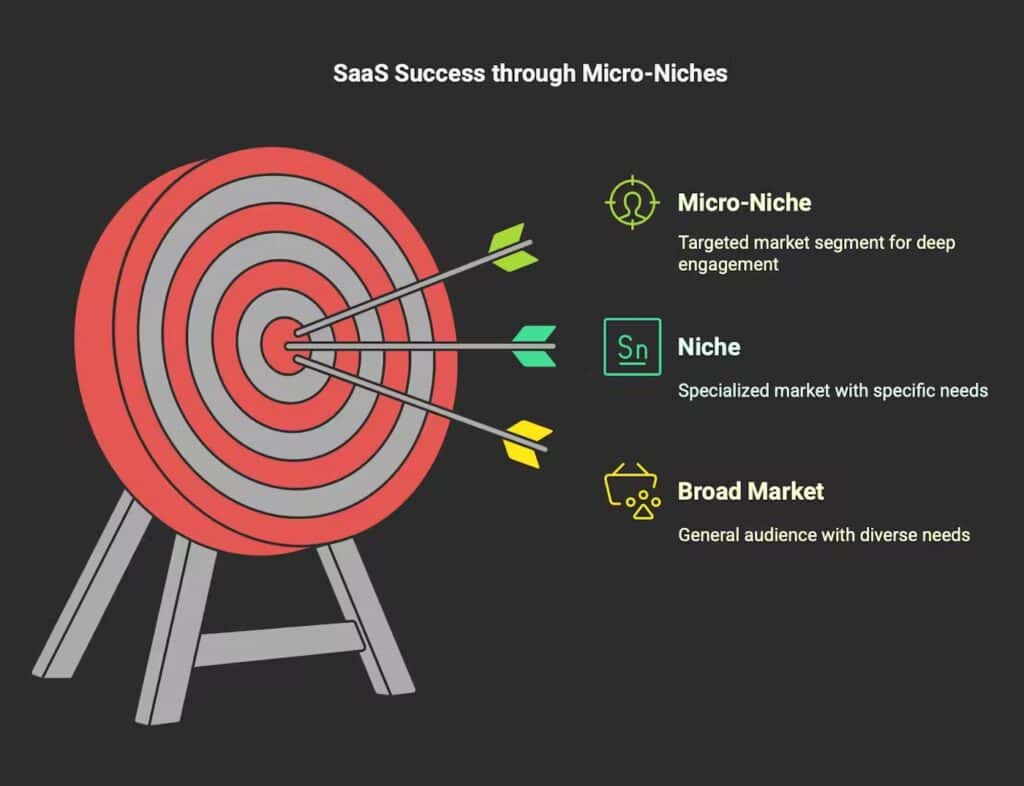
They’re smaller but often more profitable because there’s less competition and more focused demand.
The trade-off is obvious. Niches give you a bigger potential audience, but more competition. Micro-niches give you a smaller audience but way less competition and higher conversion rates.
Most successful creators and businesses start with micro-niches and expand outward as they grow.
It’s easier to dominate a small space first, then gradually expand your territory.
Examples of Niches Across Industries
Here are some examples that show how diverse and specific they can be:
E-commerce:
- Eco-friendly pet supplies for apartment dwellers
- Vintage band t-shirts from the 90s
- Smart home devices for renters
Content Creation:
- Personal finance tips for freelancers and gig workers
- Minimalist home organization for small spaces
- Plant care advice for beginners in urban environments
Software/Tech:
- Project management tools for creative agencies
- Budgeting apps for college students
- CRM systems designed specifically for real estate agents
Food & Beverage:
- Meal prep services for bodybuilders
- Organic baby food delivery
- Craft cocktail ingredients for home bartenders
Professional Services:
- Tax preparation for e-commerce sellers
- Resume writing for career changers over 40
- Social media management for local restaurants
Notice how each example combines multiple elements. They’re not just “pet supplies” or “finance tips.”
They layer demographics, specific needs, and circumstances to create something focused and actionable.
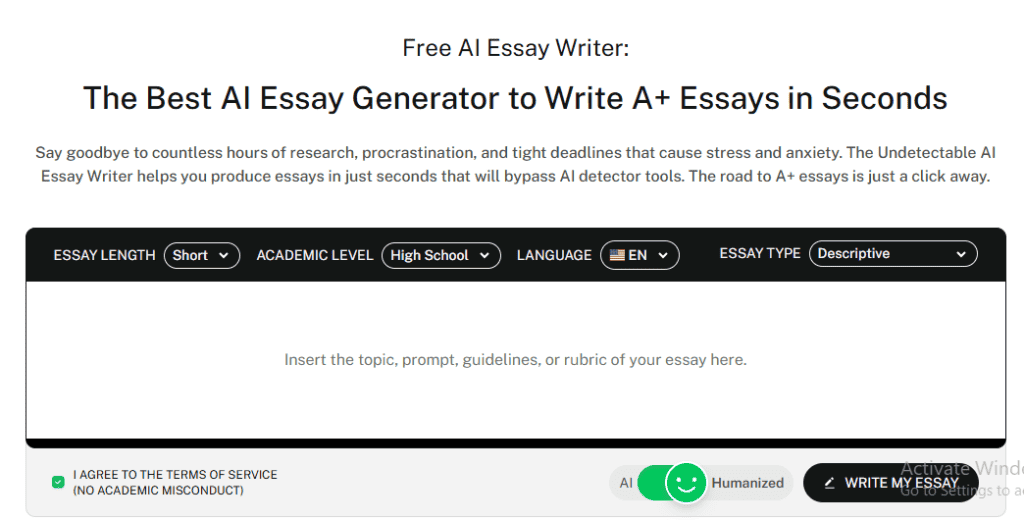
If you’re a student or professional trying to write essays that define and analyze niches with this level of clarity, tools like Undetectable AI’s AI Essay Writer can help you structure your thoughts and create compelling arguments around niche identification and market analysis.
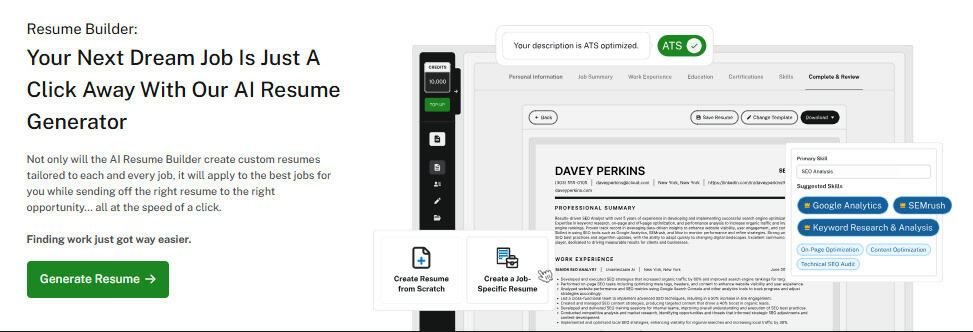
Also, if you want to transition into a new industry, your application must speak the specific language of that target market to be taken seriously.
Also, you can use Undetectable AI’s Resume Generator to highlight your specialized skills and experience when applying for roles in a specific professional niche, ensuring your background is perfectly tailored to meet the unique demands of your chosen field.
Why Niches Matter in Business and Marketing
Here’s why everyone won’t shut up about niches: They work. Really, really well.
When you try to appeal to everyone, you end up appealing to no one. Your message gets diluted. Your marketing budget gets spread too thin.
You’re competing against giants who have way more resources than you do.
But when you focus on a niche, magic happens.
You become the go-to expert for that specific group, and your marketing becomes more effective because you know exactly who you’re talking to and what they care about.
Customer acquisition costs drop because your messaging resonates better. Word-of-mouth marketing increases because people know exactly who to recommend you to.
Premium pricing becomes possible because you’re solving very specific problems that few others address.
Look at companies like Mailchimp. They could have tried to build email software for everyone.
Instead, they focused on small businesses and creative professionals who needed something simple and affordable. That focus helped them scale to billions in revenue.
The same principle applies whether you’re building a tech startup or growing your TikTok following.
Specificity creates connection.
Connection drives engagement.
Engagement leads to results.
How to Identify Your Niche
This is where most people get stuck. They know they need a niche, but they have no idea how to find theirs.
Start with these questions:
- What problems do you naturally notice? Pay attention to the complaints you hear from friends, the inefficiencies you spot at work, or the gaps you see in existing solutions.
- What do people ask you about? Your friends and colleagues already see you as an expert in certain areas. What topics do they bring to you for advice?
- Where do your skills and interests overlap with market demand? The sweet spot is usually at the intersection of what you’re good at, what you enjoy, and what people will pay for.
- What communities are you already part of? Look at the Facebook groups you’re active in, the subreddits you follow, or the conferences you attend. You might already be hanging out with your niche.
- What would you do for free? The things you’re genuinely passionate about often make the best niches because you’ll stick with them when the going gets tough.
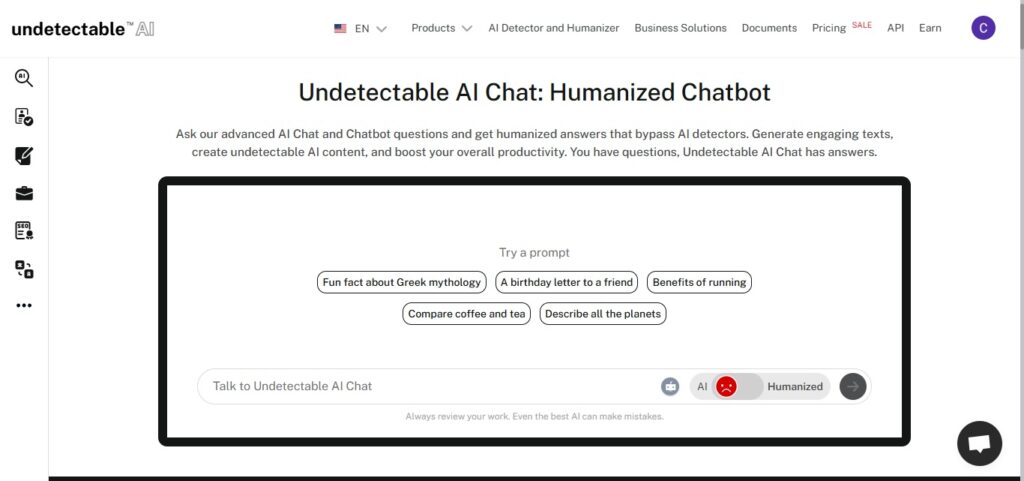
If you’re feeling overwhelmed by all these questions, consider using Undetectable AI’s AI Chat to brainstorm niche ideas interactively.
You can explore different combinations of your goals, target audience, and industry to discover opportunities you might have missed.
Once you’ve defined your niche, our Undetectable AI’s Business Name Generator helps you instantly create unique, brand-ready names that resonate with your target audience and reflect your niche identity perfectly.
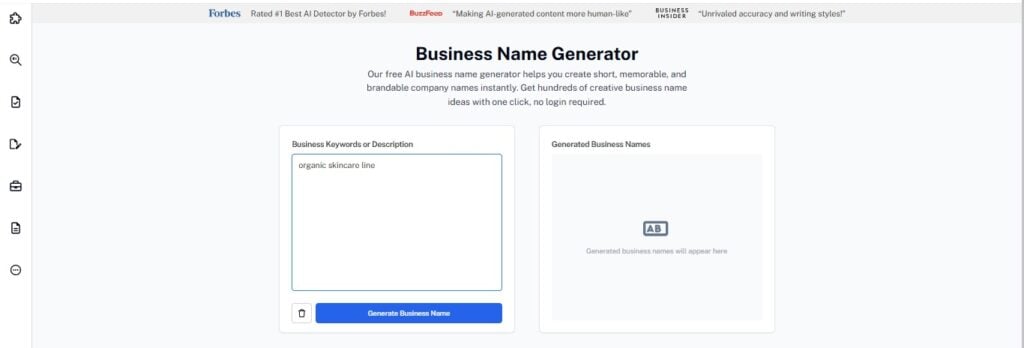
Don’t try to analyze everything at once. Pick one angle and go deep. You can always pivot later, but you need to start somewhere specific.
Benefits of Focusing on a Niche
Let’s talk about what actually happens when you nail your niche selection:
- You become memorable. Instead of being “another fitness coach,” you become “the person who helps new moms get strong again without leaving the house.” That specificity sticks in people’s minds.
- Your content creation becomes easier. When you know exactly who you’re talking to, you always know what to post about. Content pillars and ideas come naturally because you understand your audience’s daily struggles and interests.
- Pricing power increases. General solutions compete on price. Specialized solutions compete on value. When you’re the only person solving a specific problem, you can charge premium rates.
- Marketing becomes more efficient. You know exactly where your audience hangs out online, what publications they read, and what events they attend. Your marketing budget goes further because you’re not wasting money on people who aren’t interested.
- Building authority gets faster. It’s easier to become known as the expert in underwater basket weaving than in general crafts. The smaller the space, the faster you can dominate it.
- Customer loyalty improves. When people feel like you truly understand their specific situation, they become incredibly loyal. They’re less likely to switch to competitors because those competitors probably don’t “get” them the same way. Implementing effective customer loyalty software can aid in capturing and analyzing customer data, enabling businesses to tailor their offerings and communications, thereby enhancing customer retention.
- Growth becomes more predictable. With a clear niche, you can track exactly which activities drive results. You develop systems and processes that consistently work because you’re serving similar people with similar needs.
Common Mistakes in Choosing a Niche
Even when people understand the importance of niches, they often mess up the execution.
Here are the biggest mistakes to avoid:
- Being too broad. “I help people with marketing” isn’t a niche. “I help local restaurants increase takeout orders through Instagram” is a niche. If someone can’t understand your focus in one sentence, you’re probably too broad.
- Choosing based on market size alone. Yes, your niche needs enough people to be viable. But a smaller, engaged audience often beats a larger, indifferent one. Don’t just chase numbers.
- Ignoring competitive analysis. Just because a niche exists doesn’t mean there’s room for you. Look at who’s already serving that market and how you’d differentiate yourself.
- Picking something you’re not genuinely interested in. Trends come and go, but niches require consistent effort over time. If you’re only choosing based on potential profit, you’ll probably burn out before seeing results.
- Being afraid of excluding people. Every time you define your niche, you’re saying no to potential customers or followers. That feels scary, but it’s necessary. The people you exclude weren’t your best fit anyway.
- Changing too frequently. It takes time to build authority and recognition in any niche. Switching every few months because you’re not seeing immediate results just resets your progress to zero.
- Confusing hobbies with niches. Just because you love something doesn’t mean it’s automatically your business niche. Your niche needs to solve problems that people will pay to fix.
The key is finding the balance between being specific enough to stand out and broad enough to sustain growth.
Niches in SEO and Content Marketing

Here’s where niches become absolutely crucial for online success. Search engines reward expertise and authority. The more focused your content, the easier it becomes to rank for relevant keywords.
When you cover everything, search engines can’t figure out what you’re actually about.
When you focus on a specific niche, every piece of content reinforces your expertise in that area.
Your niche determines your keyword strategy. Instead of trying to rank for “marketing tips,” you target “email marketing for e-commerce brands” or “social media marketing for B2B SaaS companies.”
These longer, more specific keywords often have less competition and higher conversion rates.
Content creation becomes systematic. You can create comprehensive content hubs around your niche topics.
Each piece of content can reference and link to others, creating a web of related information that search engines love.
Your audience engagement improves because people know what to expect from you.
They’re more likely to subscribe, share, and return because your content consistently addresses their specific interests and challenges.
Building topical authority becomes possible. Instead of creating random posts about different subjects, every piece of content contributes to your reputation as the expert in your particular niche.
Test our AI Detector and Humanizer now using the widget below!
The Sweet Spot of Success
The most successful businesses today don’t try to serve everyone. They zero in on a specific audience, meet their needs, and become indispensable.
Your niche shapes everything, including the products you build, the content you post, and where your budget goes. The best part? You don’t need it perfect from the start. Pick a focused direction, test, refine, and grow.
A niche isn’t what you do, but who you serve and how you serve them better than anyone else. Get that right, and the rest gets simpler.
Ready to define your niche with clarity? Undetectable AI has the tools to help you research, refine, and position your content where it matters most.
